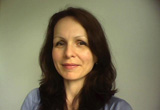 The third Basic Surgical Skills Course for Palestinian trainees at Augusta Victoria Hospital (AVH) in East Jerusalem concluded on a hot afternoon last week.
The third Basic Surgical Skills Course for Palestinian trainees at Augusta Victoria Hospital (AVH) in East Jerusalem concluded on a hot afternoon last week.
The major achievement this year was the involvement of senior Palestinian surgeons from West Bank, East Jerusalem, as well as Gaza, in delivering some of the teaching sessions. All the teaching was done in English and was preceded by the “rehearsal” of those particular sessions with the UK faculty in train-the-trainer tutorials, well before the practical days began. This confirmed that the process of training has delivered “growth.” It has also provided the first indication of succession in the near future, with the Palestinian faculty taking ownership of course delivery in the near future, with only a minimal Royal College of Surgeons of Edinburgh presence to ensure quality control for certification purposes.
This year keyhole surgery exercises were an absolute hit with the candidates. The course benefitted substantially from the four laparoscopic trainers on loan for the week from the Royal Cornwall Hospital, Truro (our thanks go to Mr Ian Finlay, consultant surgeon). This brought the total number of laparoscopic trainers up to five, which may be still some way off the ten we would ideally need to have, but a colossal improvement on just one, from previous years.
What could we improve? The premises which housed part of the 2013 course were small because of major restructuring within the main hospital building. Remarkably, the stamina of the students won on the day. This was apparent when excellent dissection skills were displayed all round, for example in excising an “abscess” from a turkey leg, despite little elbow room available. The “abscess” was made from an examination glove fingertip cut off, then filled with mayonnaise and tied off, with the resulting “abscess” inserted subcutaneously in the turkey leg.
So we struggled with the lack of room in the surgical skills centre and a lack of specimens from specialist suppliers, but our instruments only got better this year. The five laparoscopic trainers that we had and fresh tissue from the butcher did the same job. Judging by the candidates’ feedback forms, they were all in agreement that what they have gained in three days of intensive training, will stay with them for the rest of their career.
There are no firm guarantees that the Basic Surgical Skills course will survive. Boundless energy and determination from the UK and Palestinian members of the team has bought the course into its third year despite humble beginnings. In the face of absent certainties, we found that hope has the upper hand here, despite obstacles. Echoing that spirit, the Royal College of Surgeons of Edinburgh team has been delighted to accept the invitation to come back in 2014.
I declare that that I have read and understood the BMJ Group policy on declaration of interests and I have no relevant interests to declare.
Magdalena Kincaid graduated from the University of Dundee and did her surgical training in Scotland.